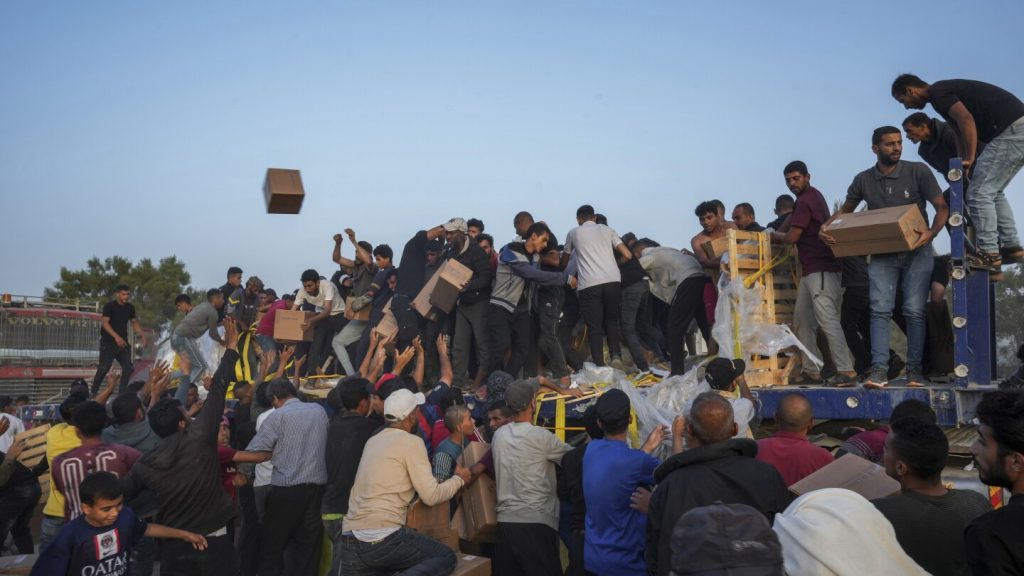The U.N. World Food Program has raised concerns about the $320 million pier project for aid deliveries to Gaza, saying it may fail unless Israel ensures the necessary conditions for safe operations. Aid deliveries were halted for two days after aid trucks were looted and a Palestinian man was killed. The Pentagon confirmed the resumption of aid movement from the secured area, but the U.N. has not received confirmation of any deliveries on Tuesday. The WFP is reevaluating logistics and security measures and exploring alternative routes within Gaza in coordination with the U.S. Agency for International Development.
Only five out of 16 aid trucks that departed on Saturday arrived at the intended warehouse with their cargo intact. The WFP spokesperson emphasized the need for sufficient supplies to prevent similar incidents in the future. The agency suspended food distribution in the southern Gaza city of Rafah due to a lack of supplies and insecurity. President Joe Biden authorized the construction of the floating pier to address the severe food crisis affecting the 2.3 million residents of Gaza. Famine has been reported in the north of Gaza, exacerbated by Israeli restrictions and recent fighting.
Aid convoys faced disruptions as crowds looted trucks and a Palestinian man was killed by gunfire. The Israeli military is responsible for security at the shore, while aid groups follow their own security protocols. The U.N. emphasized the importance of community acceptance and trust for the operation’s success. The Pentagon confirmed the delivery of aid to the secured area at the Gaza port, with efforts ongoing to find alternative routes to distribute aid. Biden announced the mission to establish a new sea route for humanitarian goods during his State of the Union address in March.
Criticism has been directed at the U.S. project, with some viewing it as “humanitarian theater” aimed at political effect. The U.N. warns of a dire humanitarian situation in Gaza, with nearly half the population facing catastrophic levels of hunger. Aid and fuel supplies are running low, threatening the collapse of humanitarian operations in Gaza. Ongoing fighting and restrictions have hindered the delivery of essential supplies through land crossings, contributing to the escalating crisis. International humanitarian organizations have called for increased aid and access to address the growing hunger and famine in Gaza.
The situation in Gaza remains critical, with limited aid reaching the population amidst ongoing conflict and logistical challenges. Efforts are being made to secure safe and efficient delivery of aid to prevent further disruptions and ensure access to essential resources for the people of Gaza. The U.N., U.S., and international humanitarian partners continue to work towards addressing the urgent needs of the vulnerable population in Gaza, as the region faces a looming humanitarian catastrophe. It is crucial for all parties involved to prioritize the well-being and security of civilians in Gaza and facilitate the delivery of life-saving aid to those in need.


